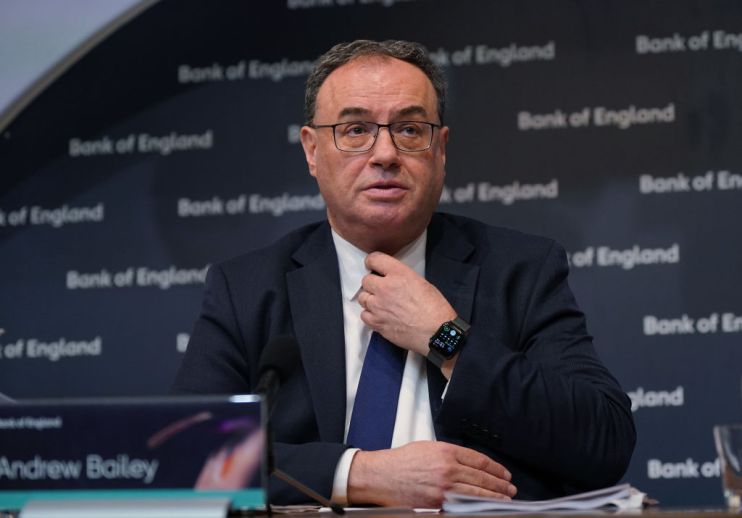Andrew Bailey stresses Bank of England focused on inflation fight rather than Credit Suisse and SVB fallout

The recent run of chaos in the global financial system that has laid waste to Credit Suisse and Silicon Valley Bank (SVB) has not distracted the Bank of England from trying to tame inflation in the UK, the monetary authority’s chief said today.
Speaking at an event at the International Monetary Fund’s spring meeting, Andrew Bailey, head of the Bank and previously chief of the Financial Conduct Authority, said financial instability has not “in any sense” prompted the monetary policy committee (MPC) to “aim off our preferred setting of monetary policy”.
Investors have been mulling whether the Bank and other top monetary authorities will pause interest rate rises to avoid heaping more pressure on an already strained financial network.
Globally, central banks have been hiking borrowing costs at the fastest pace since the 1980s, spearheaded by the US Federal Reserve, to tame scorching inflation.
Bailey and his team of experts have lifted borrowing costs eleven times in a row from 0.1 per cent to 4.25 per cent and are expected to lift them 25 basis points on 11 May. Those sharp moves have been in response to inflation racing to multi-decade highs over the past year. It is still in the double digits at 10.4 per cent.
While those efforts have chilled price increases, they have also weakened the banking sector by making it more costly to lend and borrow and putting downward pressure on asset prices.
When official borrowing costs rise, traders tend to sell government bonds until they reflect the level of return they could receive by parking their money with the central bank. Bond prices and yields move inversely.
SVB failed after customers wised up to the US tech lender’s huge bet on US government debt being on track to sour as a result of the Fed’s steep rate increases. Before it went to the wall, SVB had hundreds of billions of dollars of unrealised losses on its balance sheet.
Market jitters about future banking failures springing up have receded, but investors are still alert to any signs of stress emerging in the financial system.
Bailey said he has full confidence in the global banking system taking the weight of a higher interest rate environment, mainly because the sector has been fortified by post-financial rules that have beefed up capital buffers.
“The post [financial] crisis reforms to bank regulation have worked. Today I do not believe we face a systemic banking crisis,” he said.
“When I look at the UK banks, they are well capitalised, liquid and able to serve their customers and support the economy,” he added.